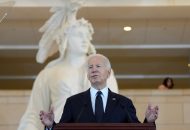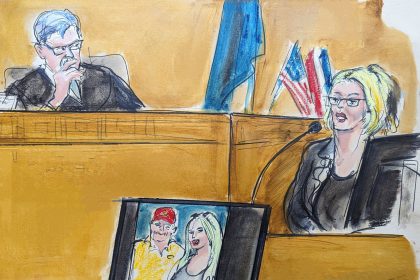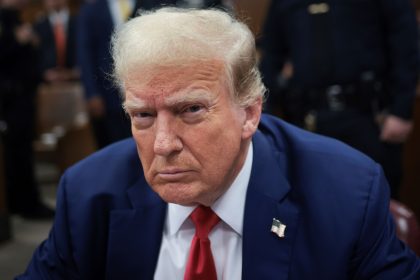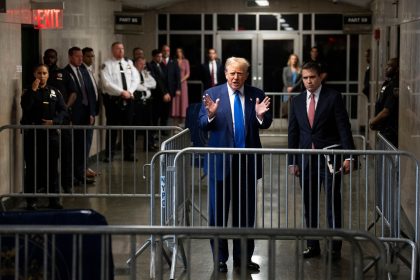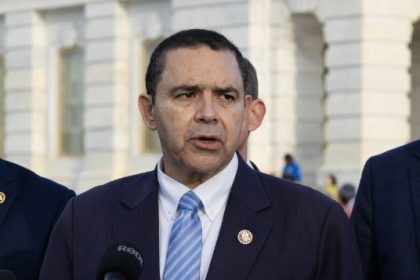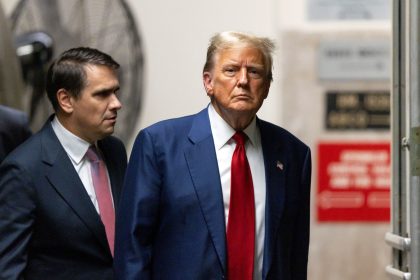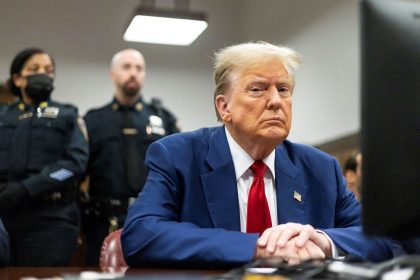Judge Defines Bitcoin as Currency Under D.C. Money Laundering Law

WASHINGTON – A federal judge’s recent ruling gave prosecutors nationwide a new tool for pursuing money launderers by redefining bitcoin as a form of currency.
The ruling was based on the prosecution of a man who tried to evade criminal charges after he allegedly transferred more than 350,000 of his customers’ bitcoins to retailers in a way which did not allow them to be traced to a source.
In other words, he sought to conceal the bitcoin transfers to retailers to purchase guns, drugs and other illegal items on the darknet, according to an indictment.
The darknet is a network of underground websites that require special authorizations and software to gain access.
The suspect, Larry Dean Harmon, was prosecuted under the District of Columbia’s Money Transmitters Act. The indictment accused him of running an unlicensed money transmitting business in Washington that operated under the name of Helix.
Harmon advertised Helix as a law enforcement evasion service for customers of the darknet market AlphaBay. Helix charged a fee to “conceal and obfuscate the source or owner of the bitcoins,” the indictment says.
In his defense, Harmon argued that bitcoin was not money under definitions of Washington’s Money Transmitters Act. Therefore, he could not be charged with money laundering.
U.S. District Court Judge Beryl A. Howell agreed the Act does not mention bitcoin but disagreed that it was not money.
Despite the oversight in the Act, the statute gives enough guidance to include bitcoin as money, the judge’s ruling said.
“The term ‘money’ … commonly means a medium of exchange, method of payment, or store of value. Bitcoin is these things,” Howell wrote.
In addition, Helix was “receiving bitcoin to send to another location or person in order to mask the original source of the bitcoin,” the ruling said.
Howell added, “Under the relevant authorities, that qualifies as money transmission.”
Between 2014 and 2017, Harmon allegedly transmitted about $311 million worth of bitcoin, which would have a value of $3.3 billion today.
“The ‘goal’ of this conspiracy was … ‘to unlawfully enrich themselves by operating a bitcoin money laundering service which would conceal and promote illegal darknet drug sales and other illegal activity,'” the judge wrote.
Helix is accused of partnering with AlphaBay in the scheme from at least November 2016 until federal authorities shut it down in July 2017.
Harmon was charged with three counts related to money laundering. The first, which he did not dispute, alleges in the judge’s opinion that he “conspired with others, including the administrator of AlphaBay, to conduct financial transactions — namely, ‘the sending and receiving of bitcoin’ — that he knew involved the proceeds of illegal drug activity.”
His attorneys disputed the other two counts, which claim he “knowingly conducted, controlled, managed, supervised, directed,and owned an unlicensed money transmitting business” without obtaining money transmission licenses.
Harmon’s attorney argued that no federal or local law describes bitcoin as money. The laws also fail to describe bitcoin transfers as money transmission, the attorney said.
The U.S. Treasury Department’s Financial Crimes Enforcement Network has published a guidance against unlicensed third-party bitcoin transfers. Harmon’s attorney said the guidance was not a law.
Harmon filed a motion for the return of 160 bitcoins seized by the government. The court denied the motion, saying they must be forfeited because of the high likelihood they played a role in the conspiracy.
The case is U.S. v. Larry Dean Harmon, case number 1:19-cr-00395-BAH, U.S. District Court for the District of Columbia.











